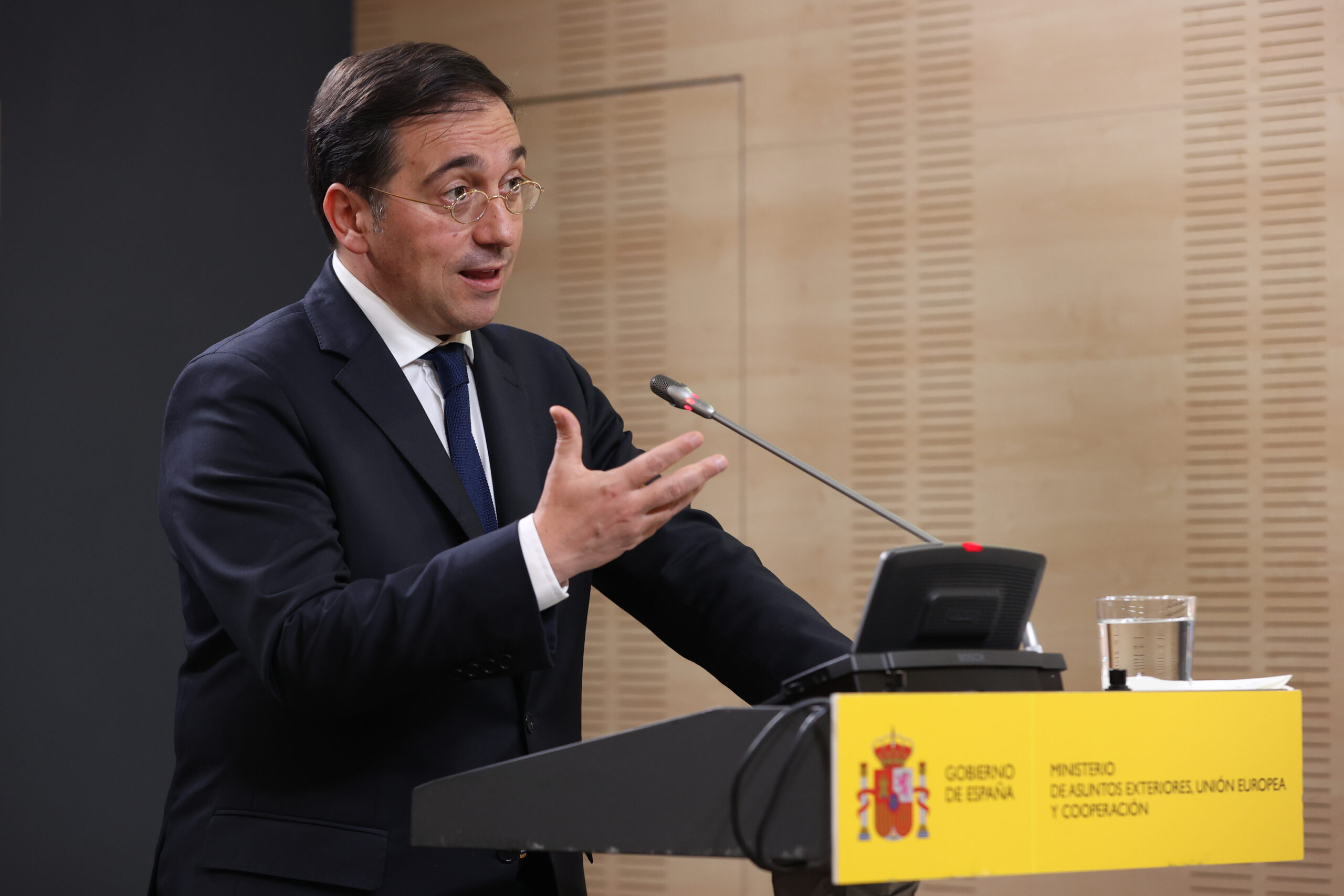The Malian Ministry of Foreign Affairs has summoned the Spanish ambassador to Mali, José Homero, to explain the “unacceptable” statements by the Spanish Foreign Minister, José Manuel Albares, about the possibility of a NATO intervention in the african country.
This was said by the Malian Foreign Minister, Abdoulaye Diop, in statements last night on ORTM public television, when he described Albares’s words as “reprehensible”, who this Thursday told RNE that he did not rule out a NATO intervention in Mali “if was necessary.”
“This statement is unacceptable,” Diop said, stating that his words “seek to encourage aggression against an independent and sovereign country.”
“We have summoned today (yesterday) the Spanish ambassador to the Ministry of Foreign Affairs to raise our protest,” announced the Malian minister, who said he was “surprised” by his statements.
According to Diop, “the (Spanish) minister must remember that the situation of insecurity and the spread of terrorism in the Sahel is related to NATO’s intervention in Libya, of which we are suffering the consequences.”
“That is why we have asked for explanations, a clarification of these words from the Spanish Government, and we hope that it arrives quickly,” he said, recalling that Albares’ statements “contrast with the friendly relations that Mali has always had with Spain, which has always supported to our country.”
Albares thus expressed himself to RNE speaking of the new strategic approach agreed upon by the heads of state and government of the NATO countries in Madrid, when he explained that “the southern flank is perfectly reflected” in it, as well as how “hybrid threats such as the flow of irregular migration or the control of energy flows”.
Regarding these “hybrid threats”, Albares did not rule out a NATO intervention in Mali “if necessary”, although he clarified that at the summit they did not focus on specific issues, but rather on NATO’s strategic framework, RNE reports in a release.
Albares’s statements come in a context of tension between the military junta that governs Mali, in power after two coups, and European countries, especially France, which reproach him for his close ties with Russia.
This Thursday, the French Ministry of Defense announced that the European military force Takuba, which has participated in the anti-jihadist fight in Mali since March 2020, has ended its operations in Mali due to political friction with the ruling junta.
In addition, the UN Security Council extended the mandate of its mission in Mali (Minusma), but the Malian permanent ambassador warned that the government of the African country will not guarantee freedom of movement to carry out investigations.
The Malian government is currently under a harsh embargo by ECOWAS, made up of West African countries, in response to its refusal to hold elections last February, as promised.
This week, the Malian military junta proposed February 2024 as the date to hold presidential elections to restore constitutional order in the African country.
Added to this political instability is the prevailing insecurity in Mali, where jihadist groups loyal to the Islamic State and Al Qaeda operate in large areas of the country and are now gaining ground after the recent departure of the French anti-terrorist mission Barkhane.
The Embassy of Spain in Mali clarified today that it has not requested any NATO intervention in the African country, in reaction to the call of its ambassador by the Malian government to clarify the words of the Spanish Foreign Minister, José Manuel Albares, on that possibility.
“Spain has not requested during the NATO summit, nor at any time, an intervention, mission or any other action by the Alliance in Mali,” the Embassy in Bamako reported in a statement released today.
The note adds that “Spain reaffirms its deep ties of friendship and cooperation with Mali and will continue to develop a peaceful and friendly relationship with Mali.”
Conforms to The Trust Project criteria
















